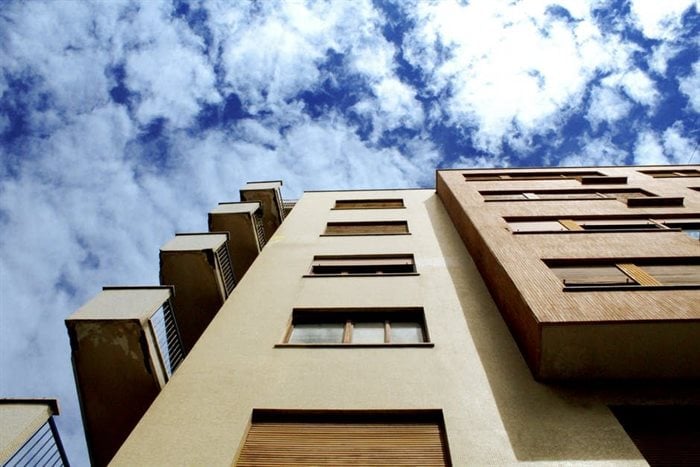
Its Residential Rental Monitor for the fourth quarter of 2022 shows rental escalations increased from 3.02% to 3.56% between the third and fourth quarters of 2022. FNB’s House Price Index reflects this trend, with house price inflation (HPI) slowing considerably at the end of 2022 to 2.9%.
Higher rental brackets saw the most improved rental growth in the fourth quarter of 2022: rental properties of R12,000 and more escalated by 4.38% while properties priced between R7,000 and R12,000 grew at 4.16%, compared to the national average of 3.56%. Properties priced between R3,000 and R7,000 per month escalated at 3.2% while those priced at R3,000 per month saw escalations of 3.33%. Gauteng’s rental prices grew at the lowest pace (2.33%), followed by the Eastern Cape (3.85%). Rental prices grew the most in the Western Cape (5.61%), followed by KwaZulu-Natal (5.29%).
New residential buildings completed in January 2023 reveals that year-on-year value decreased 11% at current prices, according to Stats SA. Flats and townhouses experienced the largest decrease of 34.1%. Sectional title is traditionally in high demand as it offers both improved security and building and occupancy efficiencies. This decrease in supply is therefore likely to impact on rental prices.
Waldo Marcus, head of marketing at TPN Credit Bureau, points out that the decrease is also an indication of confidence in the economy, consumer demand and cost of debt outlook.
“Interestingly, although the number of completed houses increased by 1% in 2022, longer term, the future of dwelling supply appears weak, as the number of building plans approved decreased 52.6% in value between January 2022 and January 2023 with Gauteng and KwaZulu-Natal experiencing the largest decrease year on year at 43.8% and 71.8% respectively,” he says.
TPN’s Credit Bureau Vacancy Survey reveals that the perceived supply of rental stock decreased from 59.19 points in the fourth quarter of 2022 to 57.75 points in the first quarter of 2023. The adjusted real value of residential building plans approved was down 55.1% in January 2023 compared to January 2022.

There has been a shift in the property investment landscape over the past 12 years. Provinces recording the largest increase in investment properties are Limpopo, the Eastern Cape, Mpumalanga, and KwaZulu-Natal. Gauteng, however, has decreased the number of residential properties listed as investments while the Western Cape grew the number of investment properties from 28.7% to 33.7%.
The number of households renting increased by 7.5% between 2020 and 2021 (the 2022 results are expected to be released in May 2023), according to the General Household Survey by Stats SA. The Eastern Cape and Mpumalanga have seen the largest decline in rental households while KwaZulu-Natal and the Western Cape grew the number of rental households by 22% and 18% respectively. These numbers are supported by the improved demand rating for KwaZulu-Natal and the Western Cape, which are both above 70 points (50 points is considered neutral).
After property values were pushed up in 2020 and 2021 by low interest rates, there are already signs that higher interest rates, inflation and the higher cost of living are combining to impact property values. Rental yields, on the other hand, are showing improved growth, as rental income and property value move into sync. Sectional title properties offered the highest rental yields at 10.18% in the fourth quarter compared to just under 7% for freehold properties.
Marcus cautions that improved rental escalations should not be viewed in isolation. “Households are currently under huge financial strain. The impact of tenants not being able to pay rent will become more noticeable over time. As a result, more consideration needs to be given to ‘effective yields’, taking tenant delinquency into account.”
Interestingly, TPN’s effective yield paints a very different picture compared to average yield, especially considering provincial performance. “For both sectional title and full title, effective yield tends to be lower than average yield,” he says.
Poor paying tenants, adds Marcus, will therefore have an impact on the ability of investors to show returns as collection cost, vacancy and opportunity cost will have an impact on yields. “Returns will remain under pressure due to the increased cost of maintenance, rates and taxes, insurance, and security expenditure to safeguard residents and assets,” he says.
The report revealed that the number of tenants in good standing decreased marginally between the third and fourth quarters, with KwaZulu-Natal and Gauteng with the most tenants who did not make rental payments in the fourth quarter. The worst performing rental bracket were tenants paying less than R3,000 per month. The Western Cape was the only province that saw a slight increase in the number of tenant accounts in good standing.
In a changing economic landscape, Marcus says property investors need to ensure they have well-structured leases and low-risk tenants. “Understanding tenant risk has become even more critical in the current environment. In addition to staying abreast of market trends, property investors need to consider providing value-added services such as alternative power and water supply solutions to ensure properties are more attractive to tenants.”